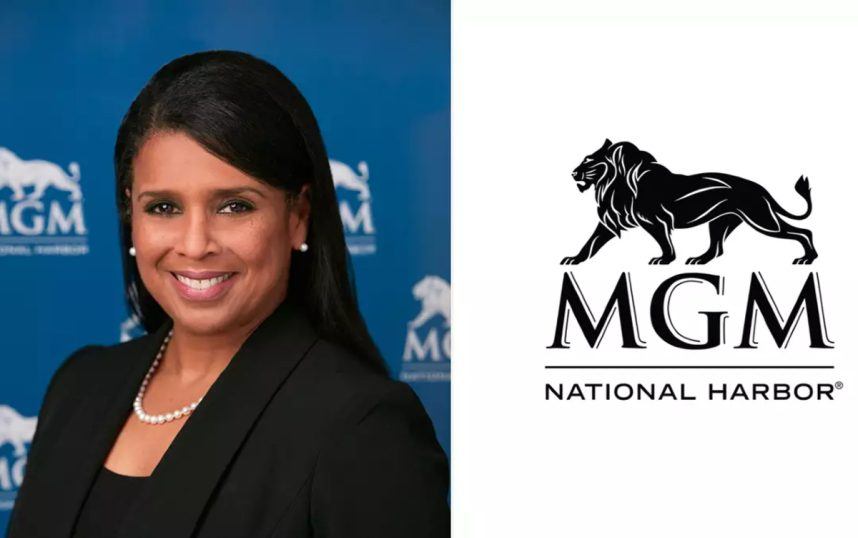Posted on: July 5, 2023, 03:27h.
Last updated on: July 4, 2023, 12:30h.
Melonie Johnson, president and COO of MGM National Harbor, the casino that generated more gross gaming revenue (GGR) than any other casino outside of Las Vegas last year, reached the top of her industry in the most atypical way. She believes her past experiences could help pave the way for more diverse leaders in the future.

Johnson was born and raised in Louisiana when the state’s gaming industry consisted of only riverboat gambling. She didn’t poke an interest in the gaming business until Harrah’s New Orleans secured the first land-based casino license in the late 1990s.
There was no attraction,” Johnson told Casino.org during a recent interview about her interest in the gaming industry after graduating from New Orleans University with a Bachelor of science and accounting.
She’s a certified public accountant and initially worked for an oil and gas exploration firm. But after that company went bankrupt, her HR department forwarded her a job posting with Caesars Entertainment for its new brick-and-mortar casino in the Big Easy.
Johnson got the call from Caesars and worked with the casino giant in finance and operations. She later joined Penn Entertainment — at the time Penn National Gaming — before joining MGM Resorts in 2015.
Johnson has since led several MGM properties, including the Gold Strike Casino Resort in Mississippi. Her status was elevated in 2017 when MGM appointed her to the role of president and chief operating officer of MGM National Harbor, the company’s $1.4 billion integrated resort that opened in December 2016.
In May 2020, MGM shuffled its regional leadership and moved Johnson to the Borgata in Atlantic City, historically the company’s most important domestic asset outside of Nevada. Johnson made history by being the first Black woman to lead an Atlantic City casino resort. But her trailblazing ways haven’t ended there.
Leader of All People
Johnson returned to MGM National Harbor in early 2022. Under her tenure, the integrated resort outside the nation’s capital in Oxon Hill, Md., has emerged as the most successful US casino not in Las Vegas.
Being a Black woman, Johnson believes she’s best suited to lead the casino, a part of Prince George’s County where about three in four residents are Black. The National Harbor boss says MGM has only improved the neighborhood since arriving through good jobs and a strong corporate ladder ready to be climbed by those willing.
We come into a community and we want to provide jobs at livable wages,” Johnson told Casino.org. “That becomes generational and helps the local economy and families.”
Johnson added that MGM provides full-time employees at National Harbor with the opportunity to receive an undergraduate or graduate degree online from the University of Nevada, Las Vegas (UNLV) for free.
“That’s what we do. We give back by developing our employees and getting them into bigger roles,” Johnson said.
Proving Ground
Johnson says the gaming industry has made strides in recent years in putting more diverse people in C-level positions, but the responsibility doesn’t only fall on the casinos and their parent companies. The MGM exec encourages minorities who wish to follow her lead to get an education, find a mentor, make connections and foster relationships, and work hard.
You’ve got to have a good foundation, and that means an education to support your goals. It isn’t easy whether you’re male or female. It requires a lot of hard work and a lot of sacrifice. You’ve got to have drive,” Johnson explained.
As for what the future holds for MGM National Harbor, Johnson said it’s her goal to leave a lasting legacy of MGM helping to revitalize the region and its surrounding communities.
This is near and dear to my heart — the legacy that we want to create — and that legacy is continued job growth, team development, providing an opportunity for individuals to cross-train and move into different aspects, and hire the next generation to make sure we’re a good corporate citizen and a great neighbor. We want our neighborhood to be better than when we got here,” Johnson concluded.


